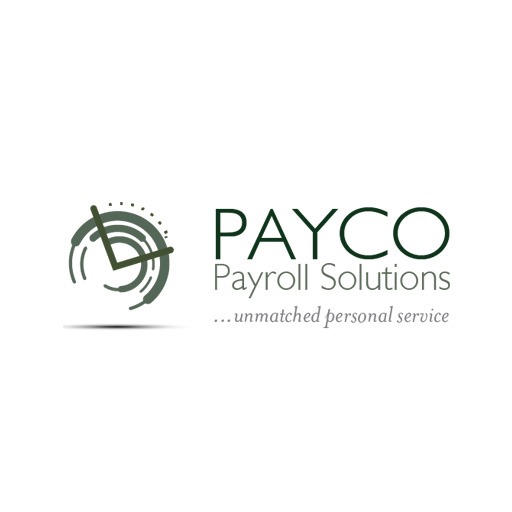Small businesses are the backbone of many communities, offering unique products and services while creating jobs. Keeping these businesses running smoothly often requires tackling a variety of challenges, not the least of which is payroll management. An efficient payroll process can ensure timely employee compensation, compliance with regulations, and overall financial health. In places like Cleveland, GA, small business owners face unique hurdles that demand smart solutions. From regulatory requirements to the complexities of managing seasonal staff, payroll can quickly become overwhelming if not managed effectively.
To help small business owners navigate these challenges, it’s essential to explore practical steps for improving payroll processes. This guide will provide invaluable tips, making payroll less of a headache and more of an opportunity for growth. Whether you’re trying to streamline your operations, enhance accuracy, or implement new technologies, there are ways to turn payroll management from a dreaded task into a seamless part of your business strategy.
Assessing Your Current Payroll Process
Before diving into payroll improvements, it’s crucial to take a good look at what you’re currently doing. Understanding the ins and outs of your existing payroll process helps identify what’s working and what isn’t. A thorough review can lead to insights that are pivotal to streamlining operations.
– Look Back: Begin by examining past payroll periods. Are there recurring issues or bottlenecks?
– Feedback Loop: Collect feedback from employees about their experience with the payroll process and any problems they’ve encountered.
– Identify Inefficiencies: Pay close attention to areas that seem overly complex or time-consuming. It might be the manual data entry or outdated systems that need revamping.
Conducting an internal payroll audit is a practical step toward improvement. Check your records for inconsistencies and mishandled accounts. Leverage tools like checklists or dedicated payroll software to help you with this audit. This ensures you cover all bases, from regulatory compliance to payroll deductions and benefits.
Whether you’re a small shop with a handful of employees or a larger operation navigating seasonal shifts, understanding your current payroll system is the first step to a smoother, more efficient process. This insight lays the groundwork for the changes ahead, setting up your business for success.
Implementing Payroll Technology
Introducing technology into your payroll process can revolutionize the way you handle payments and records. Payroll software offers numerous advantages, making operations smoother and reducing the risk of human error. For small businesses trying to juggle various tasks, these tools can save time and resources.
When selecting payroll software, look for features such as easy integration with existing systems, user-friendly interfaces, and automatic updates. Many options offer employee self-service portals, which streamline data management by allowing employees to update their own details. This can save significant time for business owners and HR teams.
To successfully integrate new payroll software, it’s advisable to:
– Research Vendors: Look for reputable providers that offer solutions tailored to small business needs.
– Try Before You Buy: Take advantage of free trials to test software compatibility with your operations.
– Plan Training Sessions: Ensure that your team understands how to use the new system effectively.
Adopting payroll technology might seem daunting at first, but taking these steps can lead to improved accuracy and efficiency in payroll management.
Training and Empowering Your Staff
Enhancing your team’s skills in payroll processes is a wise move. Understanding the nuances of payroll can lead to fewer errors and better compliance with regulations. Providing adequate training equips your staff with the knowledge they need, making them confident in handling payroll tasks.
Consider organizing workshops or online training sessions to keep everyone updated with the latest practices. Encourage an environment of continuous learning where questions are welcomed and further expertise blossomed. Empowering your staff also means trusting them with increased responsibility. Delegating specific payroll tasks, like data entry or report generation, can free up valuable time for managers to focus on other important business areas.
When employees feel valued and capable, it reflects positively on the overall workflow. Your business benefits from a more robust payroll system, while employees experience professional growth.
Ensuring Compliance and Accuracy
Compliance is a crucial aspect of payroll that can’t be overlooked, especially in areas with specific regulations like Cleveland, GA. Understanding local laws and regularly updating your procedures can help avoid costly penalties. Payroll regulations can change, making it necessary for businesses to be proactive in staying informed.
Here are some steps to ensure compliance:
– Stay Informed: Follow updates from reliable sources about tax laws and employment regulations in your area.
– Regular Reviews: Schedule periodic checks of payroll processes to stay aligned with legal requirements.
– Input Validation: Double-check entries in payroll systems to minimize errors in calculations.
Creating a system of checks and balances within your payroll procedures can further improve accuracy. Assign different team members the task of reviewing payroll entries and reports. This not only helps reduce mistakes but also fosters a collaborative work environment.
Keeping Your Payroll Streamlined and Effective
The benefits of a well-managed payroll process extend far beyond mere compliance. When businesses prioritize efficiency and accuracy, they ultimately foster a better organizational environment. Streamlined payroll means fewer headaches, less time correcting errors, and a more satisfied team. The right practices can lead to significant improvements in how your business operates.
Consistently revisiting your payroll strategy ensures it evolves alongside your business needs. By embracing payroll technologies, training staff, and establishing compliance measures, you’re setting a strong foundation. These efforts lead to better financial management and facilitate growth.
Improving payroll isn’t just about enhancing current procedures; it’s about laying the groundwork for a more resilient business. Embrace these strategies, and you’re likely to see a smoother, more efficient operation. It’s not just about meeting current needs, but also preparing for future expansion and success.
If you’re looking for smarter ways to handle payroll, exploring small business payroll management in Cleveland could be your next step toward smoother operations. PayCo Payroll Solutions is here to simplify payroll and support your team every step of the way.





